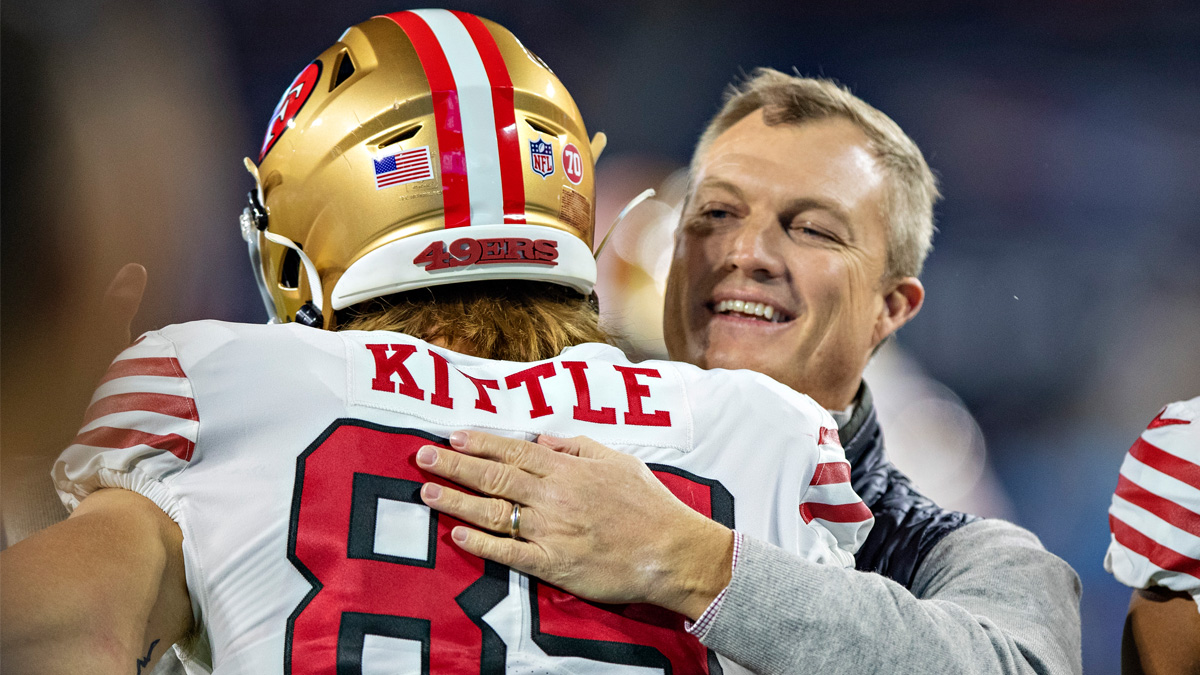ALAMEDA -- Raiders defensive coordinator Paul Guenther spent a 365-word opening statement and one follow-up question Thursday expressing frustration with the NFL’s latest interpretation of roughing the passer infractions.
“That’s my rant for the day,” he said.
This wasn’t an academic argument. It came just days after it had a profound impact on Sunday’s 28-20 loss to the Miami Dolphins.
With our All Access Daily newsletter, stay in the game with the latest updates on your beloved Bay Area and California sports teams!
Defensive tackle Maurice Hurst was called for roughing Dolphins quarterback Ryan Tannehill, which offset a Miami holding call and also erased an incomplete pass that would’ve killed a Dolphins drive. Penalties gave it second life and, on the very next snap, Tannehill hit Kenny Stills on a 34-yard touchdown strike.
Guenther was livid in the moment. The emotion hasn’t worn off in the four days since.
“It cost us seven points and the ballgame the other day,” Guenther said. “To me, when I saw the play, there were seven guys around the quarterback, there's four or five guys around the quarterback, and we're just tackling. It's a form tackle. Nothing was intentional about the sack. It's just a shame. I think the rules have gotten a little bit out of control.”
There were two extreme outcomes from this roughing the pass emphasis on flagging defensive players who intentionally put their body weight on a quarterback.
NFL
Hurst didn’t do that. The Michigan product put his head to the side, and used just enough forced to get Tannehill’s big body down. Then Hurst drew a flag.
“It wasn't like he picked him up and slammed him down,” Guenther said. “It was just a form tackle. So, I guess he’s got to turn to the side, and it's hard. And all of a sudden, now you turn to the side, and the quarterback gets out of the grasp, and he's running, and I'm yelling at the kid for that. It's just frustrating.”
Dolphins defensive end William Hayes tried so hard to avoid a flag while sacking Derek Carr that he swung his leg out wide, landed awkwardly and tore his ACL. Hayes admitted he was trying to abide by the letter of the law when he got hurt.
Carr lamented Hayes' injury in his Wednesday press conference.
“I wish the guy would’ve just landed on me besides tear his ACL. Honestly,” Carr said. “I’ve been playing a while. I’ve been hit my fair share, and guys land on you and things like that. It is what it is.
"On that play for him to try to protect me, which I’m thankful for. Thank you. But for him to tear his ACL, nobody wants that. I don’t want that. When people were getting hit in the head, well then safeties started hitting people in the knees and ankles. I’ll take you hitting me in the head any day over that. It’s that fine line of our league, trying to find that right balance.”
Guenther isn’t the only prominent member of the NFL criticizing these roughing the passer calls. He emphasized several times that player safety is important to him, but the league’s emphasis on this particular rule has gone a bit too far.
“You have to have a rules expert up in the booth to clarify what's a catch, what's not a catch. What's roughing the passer, what's not roughing the passer? We just got to work through it,” Guenther said. “I just wish that we could simplify the rules a little bit and get back to what football once was. I'm all for player safety, don't get me wrong, but there's just too many of these (penalties) going on.”




